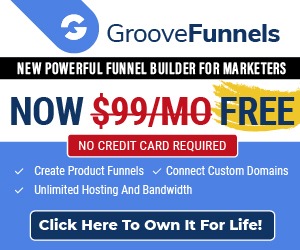Link Building
The spiders and robots find content by finding links on other sites. If there are no links pointing at your site from page that Google has already indexed, then it will have no way of knowing your content is there and you might not come up in searches at all as a result.
At the same time though, these links (called ‘inbound links’) also serve another role; they act as testimonials or referrals. The assumption is that if a website is linking to your website, then that website must think your content is useful or interesting. If lots of high profile websites are linking to your site, then that probably means they’re right.
This is the general concept but as with keyword density, it’s crucial that you don’t try to manipulate this approach. Sites that build a huge number of low quality links will be penalized for instance, as will sites that attempt to buy links, sites that only ever swap links and ‘blog networks’ that link to each other in a large chain.
Optimization
Finally, a good SEO strategy should also include some optimization for the website itself. This means that the site should load quickly, should be responsive so that it looks good on any type of display (including mobile) and should be intuitive to navigate and not drowning in adverts. Therefore it is important that you are using a good theme, like the OptimizePress theme.
All this is important because Google wants to ensure that the sites it sends visitors to will provide an all-round good experience no matter what type of device they’re on. What’s more, when a website is designed in a specific way, this can help make it easier for Google’s spiders to navigate. Having a ‘site map’ for instance can be a big help because it ensures Google doesn’t miss any content on your wider site.
The Process
With all that in mind then, the general process for SEO involves adding lots of high quality blog content to your site on a regular basis including keywords and trying to get as many links as you can on external websites that are relevant to yours.
As an affiliate marketer, it’s not a good idea to spend too much time doing this – as there are faster ways to get more direct traffic. However, you can get a lot of ROI by simply adding the content (which has other uses as we’ll see) and aiming to get links on a few of the larger blogs in your niche. You can achieve the latter by using ‘guest posts’. Here, you provide a blog in your niche with free content under the proviso that they provide a link back to your website in return. This way, they get free content and you get free links. Start with blogs that are at a similar level to yours and as you build up, you can target the bigger and bigger sites. One link on the right site can potentially completely change your fortunes, so don’t underestimate the value of this strategy.
At the same time, building a site effectively with WordPress will ensure that you have good optimization, rapid load times and a responsive design.
More PPC
Google AdWords
We’ve already discussed how to use Facebook Ads for PPC but this is only one type of PPC. Another network that provides a similar service is the highly popular ‘Google AdWords’. AdWords is like a mix between Facebook Ads and SEO, essentially letting you pay ‘per click’ for ads that appear on specific SERPs (Search Engine Results Pages). You choose the keywords that you intend to target, pay for an ad and then have your results show just above the organic results as a ‘sponsored result’.
AdWords as a Research Tool
Interestingly, you can also use AdWords as a research tool before you do your SEO. Bearing in mind that it can take a long time to succeed at SEO and to get to the top of the organic search results, it’s a good idea to make sure that your search terms are worth ranking for before you put in all that time and effort or before you pay someone a lot of money to do it for you.
As such, you should consider using AdWords as a result tool by testing the search terms that you’re interested in ranking for as AdWords keywords. If those ads bring in lots of money, then you know it’s worth finding the organic results. If they don’t? Then you should try different keywords and see if they do better. Once you find a term that is profitable, then you know it’s worth putting in the time.
Using AdWords instead of Facebook Ads provides unique benefits. For instance, it means that you’ll be able to target your visitors when they’re actively looking for the kinds of content you provide. At the same time, you’ll also have some specific tools that you can use to enhance your campaign. For instance, Google ‘Remarketing’ targets people who have already been to your website and visited a specific page. An example of how this can be used is to retarget people who spent time looking at your eBook with ads for that same eBook. This is an incredibly high ROI way to advertise because the person already knows what you’re advertising and thus aren’t likely to click on your ad unless they’re interested in buying the product.
Another unique feature of AdWords is that it lets you include something called ‘negative keywords’. These are keywords that you want to filter out so that your ads won’t show. An example of this might be to filter out the word ‘free’ – this way you won’t waste time advertising to someone who has expressly stated they’re not looking to spend money.
AdWords also integrates with Google Analytics which provides you with a ton of data and metrics that you don’t get from Facebook. For instance, what you can do with an Analytics account and an AdWords account is to set up goals – such as someone buying your book. You can then look at your control panel to see which ads are resulting in the most actual conversions – rather than just the most clicks. This kind of insight lets you hone your advertising campaign far more precisely and greatly increase their effectiveness over time.
CPA
That said though, Facebook does have a feature that is somewhat comparable to goals and in fact this can be considered even more powerful.
Specifically, Facebook gives you some basic CPA functionality. CPA stands for ‘Cost Per Action’ and what this means is that you’re no longer paying per click, but are instead paying per action. An action can be anything from someone buying a product (or in Facebook’s case, redeeming a special offer) or subscribing to a mailing list. In essence, this makes Facebook somewhat similar to an affiliate!
Unfortunately, it’s not easy to set up affiliate sales as your action. This means you can’t guarantee ROI by having a situation where you only get charged when someone buys your affiliate product.
That said, this is a very useful tool for building up your mainlining list and effectively means you’re paying X amount per targeted subscriber. Likewise, you can use this as a strategy to increase your Facebook page likes. Either of these can then subsequently be translated into conversions at least theoretically.
There are also a number of CPA sites networks that specialize in this kind of service and are much more flexible as a result. These sites include MaxBounty, Ascend Media, AdWorkMedia and more. While this is a great platform in theory though, the industry isn’t quite as developed as PPC overall, so there’s no one platform that has yet risen to prominence. Most CPA networks are a little tricky to get into to start with and some of them have been associated with dodgy practices.
Still, for the advanced marketer, this is certainly an area to keep an eye on!






Leave A Response